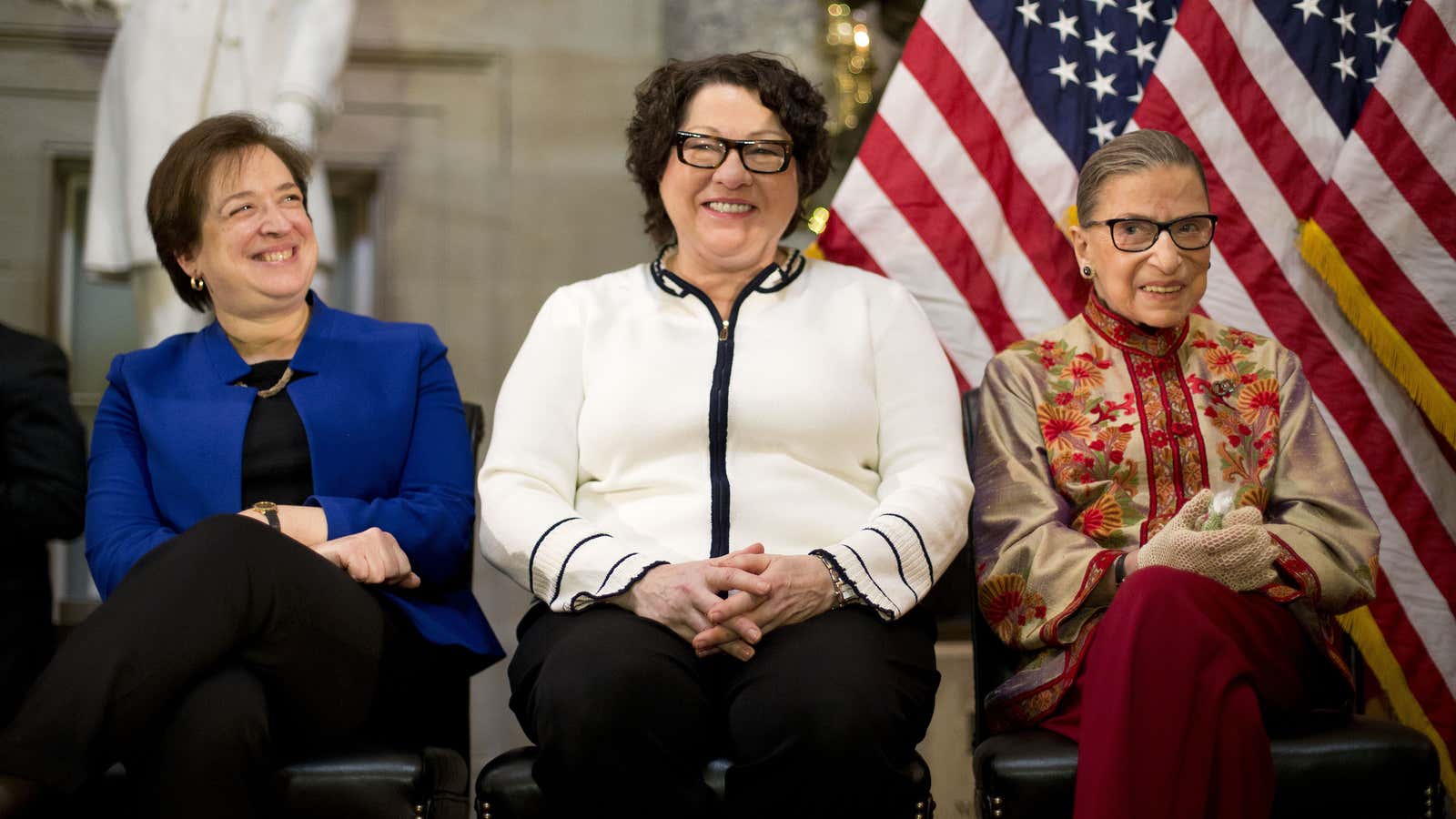The death of justice Antonin Scalia has left the US Supreme Court in something of an existential crisis. The country waits to see if president Barack Obama will nominate a ninth Supreme Court justice before the end of his second term—and whether the GOP-controlled Senate will confirm his nomination. Regardless of when it happens, filling Scalia’s vacancy could decidedly make the Court more conservative or liberal.
Or, more female: Obama has reportedly begun to vet Iowa judge Jane L. Kelly, according to the New York Times.
If the White House is considering Kelly, it would be the first time that the US Supreme Court has four female justices. Of course, Kelly would still have to be confirmed and appointed to the position—and right now, chairman of the Senate Judiciary Committee Charles E. Grassley has promised he will block Obama’s nominations. In an interview yesterday (Mar. 2), Grassley said that appointing a ninth justice “has got to be [about the] process” and not about “the person.”
Senator Grassley’s home state complicates things, however. Both he and Kelly hail from Iowa, and the Times notes that Grassley may feel compelled to consider Kelly’s nomination in order to please his state’s voters (Grassley is up for re-election in a few months). That’s no guarantee that he will, though: The Times also reports that Grassley has said he would not change his position, even for a fellow Iowan.
Still, the weight of filling Scalia’s vacancy seems to have hung over the Court this week, as it heard oral arguments for one of the biggest abortion cases the nation has seen in decades. During the deliberations, the three female justices sharply qusetioned the Texas Solicitor General, Scott Keller, as to the state’s motives in passing some of the strictest abortion restrictions in the country. Slate’s court reporter Dahlia Lithwick notes that justice Stephen Breyer grilled Keller, as well. That seems to divide the court four-by-four, and could confirm what some have speculated: that the Court vote on this issue, without Scalia, it will result in a tie, and they will be unable to issue an opinion. As a result, as the Los Angeles Times writes, “Such a move does not set a legal precedent, but it would allow Texas to enforce its law.”
That makes the appointment of the next Supreme Court justice all the more meaningful—he or she could change not just the make-up of the Court, but also potentially sway the Court one way or the other on divisive cases, like this one on abortion rights. Regardless of whether it happens while Obama is in office or not, it has the potential to change things for women in this country.
